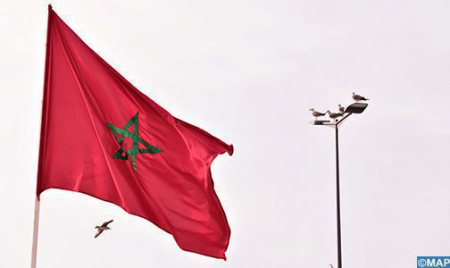Morocco’s Role in Supporting Africa’s Development and Unity Highlighted in Mexico City
Participants in the celebration of Africa Day, hailed on Wednesday in Mexico City the pioneering role of Morocco in supporting the development and unity of the African continent. The event, organized by Morocco’s Embassy in Mexico City in coordination with the Fatima Mernissi Chair at the Autonomous University of Mexico, was an opportunity to highlight the Kingdom’s contribution, under the leadership of HM King Mohammed VI, to the development of Africa and the reinforcement of solidarity between its countries. Speaking on this occasion, Morocco’s Ambassador to Mexico, Abdelfattah Lebbar, underlined the depth of the Kingdom’s African roots and its continued dedication to the rise of a strong and bold Africa capable of defending its interests and making its voice heard on the international scene. Morocco’s return to the African Union (AU) allowed the country to consolidate its African membership through the establishment of about 1,000 cooperation agreements with other African states, the diplomat said, adding that the Kingdom’s attachment to the emancipation of Africa is one of the priorities of its foreign policy. South Africa’s ambassador to Mexico, Dennis Thokozani Dlomo, highlighted Morocco’s significant contribution to addressing major African issues, from tireless support for liberation movements in Africa to its efforts for economic development of the continent. “Morocco has provided significant support to former President Nelson Mandela. It also backed the struggle of the South African people to free themselves from the yoke of apartheid,” the diplomat told MAP. In Dlomo’s opinion, Africa is now facing major challenges that require a sustained and global economic momentum and the combined efforts of all its countries to move forward on the path of progress and solidarity sustainable. In similar remarks, the Ambassador of Côte d’Ivoire in Mexico City, Robert Djérou LY, said that Africa Day is an opportunity to recall Morocco’s historic contribution to the political emancipation of the continent, and to emphasize the country’s commitment under the wise leadership of HM the King to Africa’s stability and prosperity. “The Kingdom’s commitment to Africa is illustrated by the significant investments and cooperation agreements it has signed with many African countries to accelerate development and ensure a prosperous future,” he said. Djérou LY also recalled the solidarity of the Kingdom with other African countries during the Covid-19 pandemic. As for Guadalupe Valencia García, coordinator of the Faculty of Humanities at the National Autonomous University of Mexico, she stressed that the celebration of Africa Day is an opportunity to emphasize the importance of stronger relations between Morocco and Mexico considering the strategic geographical position of these two countries as a gateway to Africa and Latin America. The celebration of Africa Day was attended by many African and Arab diplomatic representatives in Mexico, as well as academics, students of the National Autonomous University of Mexico, and members of local associations of indigenous peoples and Afro-American communities. The event was marked by the screening of “Morocco and the liberation movements in Africa,” a documentary by Hassan El Bahrouti which highlights the most significant stages of Morocco’s struggle against colonialism in the continent since independence. The Moroccan Embassy also organized a stand that offered an overview of the Kingdom’s gastronomy.

